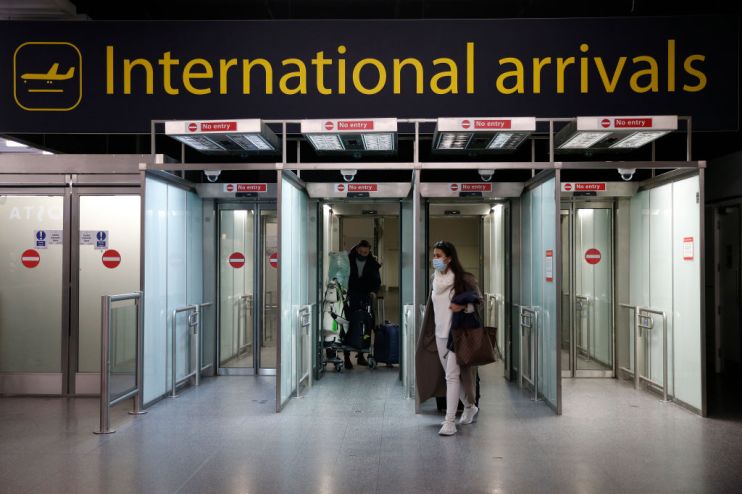Hotel quarantine to cost £1,750 per person with flouters facing 10 years in jail

All passengers returning to the UK and Ireland from “red list” countries from Monday must quarantine at a hotel for 10 days at a cost of £1,750 per person, the health secretary has announced.
“Any returning citizens will have to quarantine at an assigned hotel room for 10 days —or for longer if they test positive for Covid-19 during their stay,” Matt Hancock told MPs.
An initial 4,600 rooms will be made available via 16 different hotel operators from 15 February, the health secretary announced. The mandatory £1,750 package will cover costs for hotels, transport and testing.
The programme will apply to all British citizens returning from 33 countries considered most at risk of carrying new Covid mutations, including the South Africa variant. Scientists are concerned the new strains may prove partially resistant to available vaccines.
“People will have to remain in their rooms and of course will not be allowed to mix with other guests and there will be visible security in place to ensure compliance alongside necessary support,” Hancock added.
All passengers will also be required to take a pre-departure test, and further tests on their second and eighth days of quarantine.
Arrivals must book their tests via a new online portal which is set to go live on Thursday, with the tests automatically undergoing genomic sequencing to check for emerging Covid variants.
10 year prison sentence
The government will take a hard line on quarantine flouters, with penalties of £1,000 for any international arrivals who do not take a first mandatory test, £2,000 for anyone who refuses to take a second mandatory test, and £5,000 — rising to £10,000 — for arrivals who fail to quarantine at designated hotels, Hancock announced.
Giving false information on the Passenger Locator Form in the 10 days before arrival will lead to a prison sentence of up to 10 years.
All flights from “red list” countries are currently halted, but arrivals to the UK must declare whether they have visited any in the past 30 days.
“I make no apologies for these strong measures, because we’re dealing with one of the strongest threats to our public health we’ve faced as a nation,” Hancock told the Commons.
“These measures will be put into law this week and I’ve been working to make sure that more resources are being put into place to enforce these measures.”
Industry response
Clive Wratten, chief executive of the Business Travel Association (BTA), slammed the quarantine scheme as “inflicting mortal damage on livelihoods across the country”.
“Today’s announcement of details around quarantine hotels and increased testing will bring business travel to a standstill, preventing thousands from doing their jobs,” he said.
Wratten accused the health secretary of having “singularly failed to see the impact of these decisions on their supply chain, and called for targeted support for the travel industry to avoid “being cut off from the world”.
The government has faced fierce backlash from MPs and hotel operators over sluggish progress with the hotel quarantine scheme against the backdrop of the ongoing threat from emerging Covid variants.
The Prime Minister’s official spokesperson yesterday revealed the government still had not signed a single contract with any hotel firms with just one week to go until the programme comes into effect.
Nick Thomas-Symonds, the shadow home secretary, on Friday slammed the scheme as “half-baked”, warning that the delay was “putting people at risk”.
Hotel chiefs have said there has been “no dialogue” with the government, and warned that they will need more time than the current six-day period until the scheme comes into place.
Read more: How many Covid-19 infections are there in your London borough?
Meher Nawab, the chief executive of London Hotel Group, told BBC Breakfast: “There has been no open dialogue between the hospitality sector and the government.”
“There is a lot of training to go into this, a lot of health protocols as well, and actually the insurance has to be approved. If you want to do something properly, and the amount of due diligence and protocol that has to go into place, it takes a long time.”